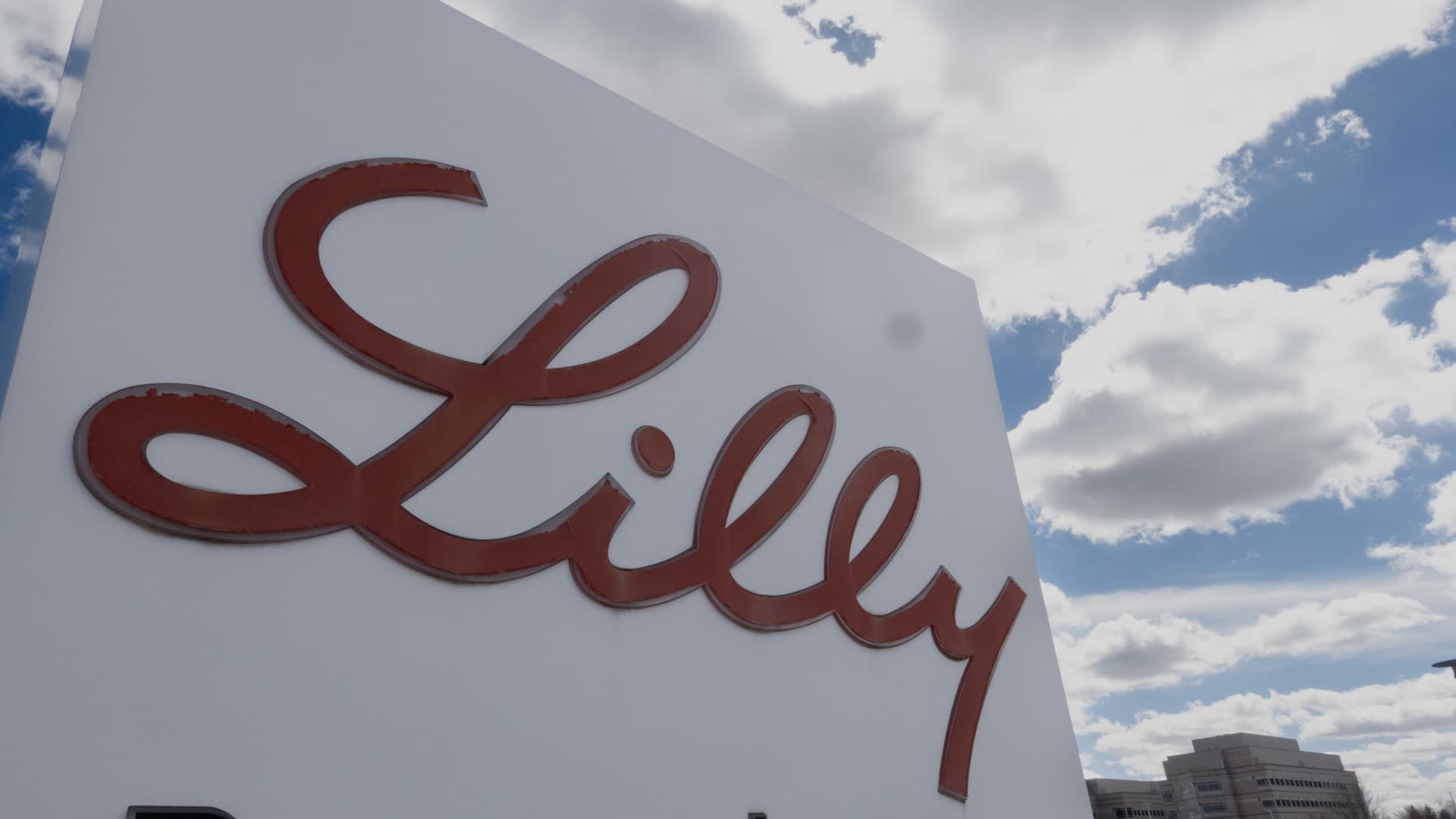A sign with the company logo sits outside of the headquarters campus of Eli Lilly and Company on March 17, 2024 in Indianapolis, Indiana.
Scott Olson | Getty Images
The Food and Drug Administration on Tuesday approved Eli Lilly‘s Alzheimer’s drug donanemab, expanding the limited treatment options for the mind-wasting disease in the U.S.
The agency approved the treatment, which will be sold under the brand name Kisunla, for adults with early symptomatic Alzheimer’s disease, according to the company.
Nearly 7 million Americans have the condition, the fifth-leading cause of death for adults over 65, according to the Alzheimer’s Association. By 2050, that group is projected to rise to almost 13 million in the U.S.
It’s a long-awaited win for Eli Lilly after donanemab faced obstacles in its path to market. The FDA rejected the drug’s approval last year due to insufficient data, then surprisingly delayed it again in March. Earlier this month, an advisory panel to the agency recommended the treatment for full approval, saying the benefits of the treatment outweigh its risks.
Donanemab will compete head-to-head with another treatment from Biogen and its Japanese partner Eisai called Leqembi, which has gradually rolled out in the U.S. since it won approval last summer.
Eli Lilly’s drug is now the third of its kind to reach the market after Leqembi and an ill-fated therapy from Biogen and Eisai called Aduhelm. The two companies recently dropped that medicine. The FDA received criticism for its expedited approval of Aduhelm in 2021 despite a negative recommendation from an advisory panel.
Donanemab and Leqembi are milestones in the treatment of Alzheimer’s after three decades of failed efforts to develop medicines that can fight the fatal disease. Both drugs are monoclonal antibodies that target toxic plaques in the brain called amyloid, a hallmark of Alzheimer’s, to slow the progression of the disease in patients at the early stages of it.
Neither treatment is a cure. Drugs that target and clear amyloid plaque can also have significant safety risks, including swelling and bleeding in the brain that can be severe and even fatal in some cases.
Three patients who took Eli Lilly’s drug in a late-stage trial died from severe forms of those side effects, called amyloid-related imaging abnormalities, or ARIA.
